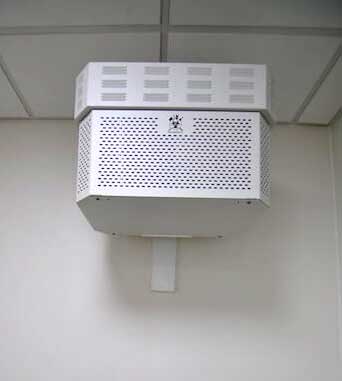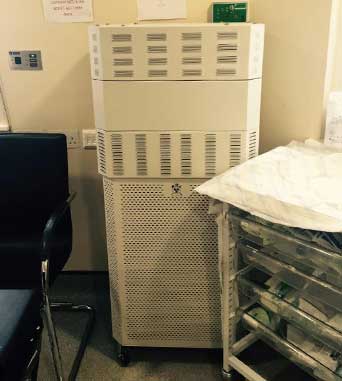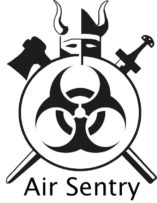About Airsentry
Air Sentry® is a unique system that has been evolved alongside NHS trusts to combat air transmitted or transported disease.
It is normally used as a fixed system, sited on a wall out of reach, where it produces a slow moving, whole room air current. It has been tested by the NHS air research unit in Leeds, 2010.
1. Development
In 2009, during the Swine Flu outbreak, a mobile system was evolved alongside Belfast Hospital for Sick Children.
Based in Malmesbury, Wiltshire, Airsentry® is solely focused on producing mobile units for the time being, to help protect staff and patients during the coronavirus pandemic.
Below are some examples of earlier systems, which are in use currently for ICU, A&E, Burns, HIV, PICU, Isolation, Infectious Diseases, Oncology and radiology. The system has also been used for small OR areas regulated by the CQC.
Air Sentry Limited is a ISO9001:2015 quality registered company.


